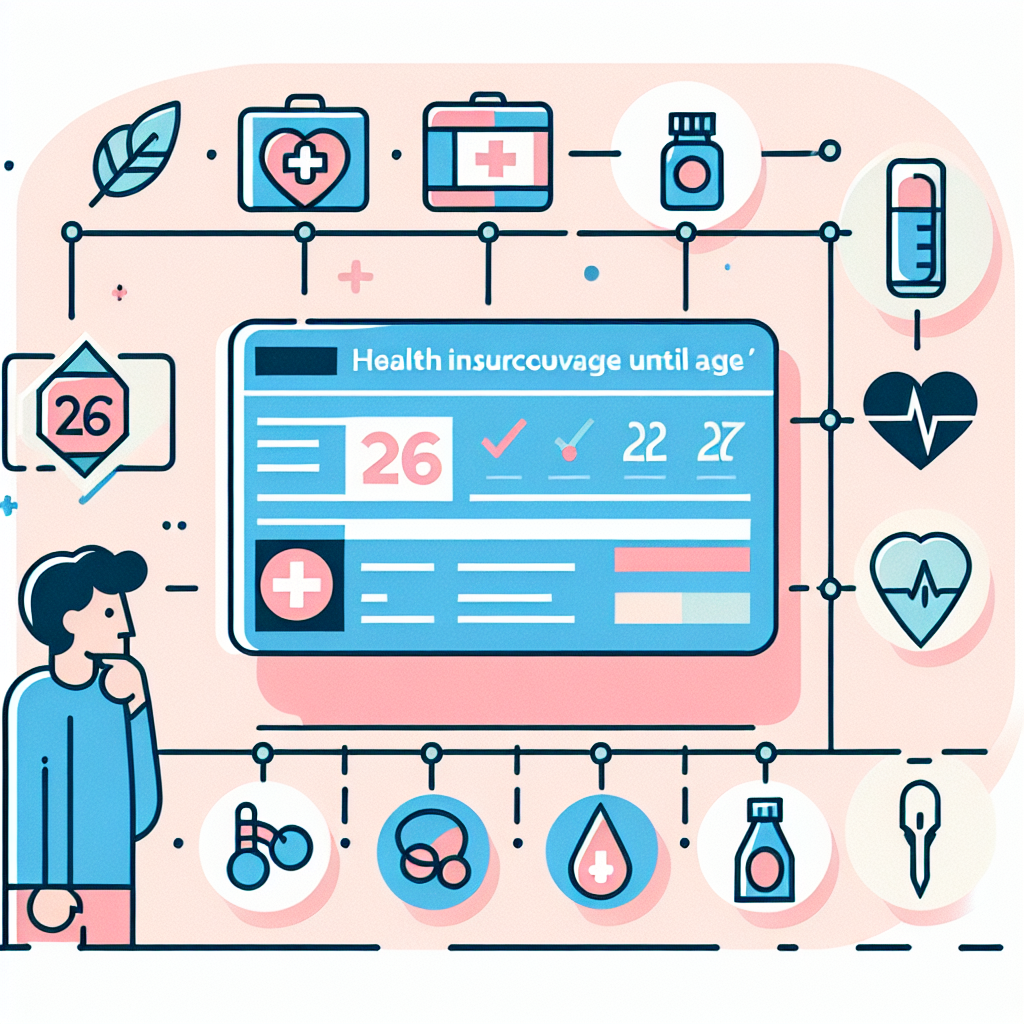Filed under Health Insurance on
Understanding Health Insurance Coverage Until Age 26

Understanding how health insurance coverage functions until age 26 can be essential for young adults and their families. Navigating health insurance may seem daunting, but gaining clarity on this subject can empower individuals to make informed decisions about their healthcare needs. This comprehensive guide explores the nuances of health insurance coverage up to age 26, providing valuable insights that cater to both newcomers and those familiar with the landscape.
The Basics of Health Insurance Coverage Until Age 26
The Affordable Care Act (ACA), enacted in 2010, introduced a provision allowing young adults to stay on their parents' health insurance plan until age 26. This policy was designed to offer stability during a transitional period of life, where many are completing education, finding employment, or pursuing other life goals.
Understanding health insurance coverage until age 26 is crucial for several reasons:
- It ensures continuous healthcare access.
- It provides cost savings for families.
- It fosters preventive healthcare among younger populations.
Who is Eligible?
The extension of health insurance coverage until age 26 applies to various groups, including:
- Full-time students
- Part-time workers
- Unemployed individuals
- Married young adults
This broad eligibility ensures that more young adults can take advantage of the provision without being affected by their marital status or employment situation.
How Does It Work?
Parents may add or keep a child on their plan, allowing access to medical benefits and protections that the insurance policy offers. This can include preventive services, emergency care, and specialist consultations.
Understanding health insurance coverage until age 26 requires recognizing the various types of plans that might be involved:
- Employer-Sponsored Plans: Most private employers offer plans that comply with the ACA mandates.
- Individual Plans: Marketplaces or private providers may offer individual policies that align with ACA regulations.
- State Plans: Medicaid and state-specific programs can provide options for eligible individuals.
Benefits of Staying on a Parental Plan
The advantages of remaining on a family health insurance plan until age 26 are considerable:
- Cost Efficiency: Sharing a policy with a family can often reduce overall expenses, thus making healthcare more affordable.
- Continuity of Care: Maintaining the same insurance facilitates uninterrupted access to preferred healthcare providers and services.
- Comprehensive Coverage: Parents' insurance often includes added benefits that standalone policies for young adults might lack.
Exploring Alternatives
While staying on a parental plan is beneficial, some may seek alternative options that better fit their unique situation. These could include:
- Employer Insurance: Young adults who secure full-time employment may receive comprehensive plans from their employers.
- Marketplace Plans: The Health Insurance Marketplace offers diverse policies tailored to individual needs.
- Medicaid: For those qualifying based on income, Medicaid provides essential coverage alternatives.
Common Challenges and Solutions
Understanding health insurance coverage until age 26 involves navigating potential challenges. Here are some common issues and how to address them:
Problem: Understanding Plan Details
Solution: Consult the plan's documentation, speak with HR representatives, or connect with insurance advisors for clarification. Comprehensive understanding aids in maximizing benefits.
Problem: Coordinating with Providers
Solution: Confirm network participation and understand referral requirements. This ensures optimal utilization of covered services without unexpected out-of-pocket costs.
Problem: Balancing Costs
Solution: Evaluate premium, deductible, and out-of-pocket limit balances. Opt for a plan that aligns with both current healthcare needs and financial capabilities.
The Future of Health Insurance Coverage for Young Adults
As healthcare reforms continue to evolve, understanding health insurance coverage until age 26 remains imperative. Continuous adaptation by insurers, coupled with governmental policy shifts, ensures alignment with the ever-changing healthcare environment.
Trends indicate an increasing emphasis on digital healthcare solutions, personalized plans, and preventive care. By staying informed about these developments, young adults and their families can make proactive decisions conducive to long-term health and well-being.
Expert Opinions
Industry specialists emphasize the importance of young adults proactively managing their health insurance coverage. According to healthcare consultant Jane Doe, "Understanding health insurance coverage until age 26 is not just about access to immediate care; it's about fostering long-term health literacy." Engaging with resources, attending informational sessions, and leveraging digital tools can facilitate this understanding.
Conclusion
Grasping the complexities of health insurance coverage until age 26 offers peace of mind to both young adults and their families. This critical juncture in life need not be marred by uncertainty or financial strain, as comprehensive coverage options and expert guidance are widely available. With the right approach, young individuals can transition smoothly into independent healthcare management, armed with the knowledge and confidence to prioritize their well-being.





